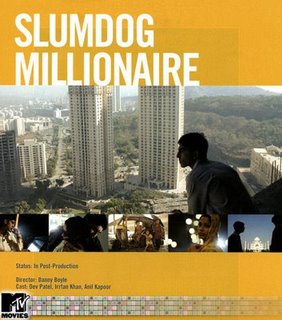The Reader
“I noticed that if you do a film about the holocaust, you’re guaranteed an Oscar,” said “The Reader” star Kate Winslet on the British comedy show, “Extras.” Now here she is in a film where she plays ex-Nazi Hannah Schmitz, on trial for war crimes. The film is divided into two segments: the first focuses on an affair between Hannah and a schoolboy, Michael, and the second half focuses on the devastating effect the affair has on the boy. The problem with “The Reader” is that the affair just isn’t that interesting, and almost nothing is explored until the second half. It gets into some rich topics of discussion, but it treads through monotonous territory for about half the length of the film.
Milk
“Milk” is a straightforward biopic of an extremely controversial man: Harvey Milk, the first openly gay politician. It is sure to draw a lot of fire, for it is unapologetically proud of Milk’s accomplishments for the gay rights movement. It is a good film, nonetheless. What it provides is an alternative perspective on homosexual lifestyle and rights, seen from within the gay community. Sean Penn makes Milk a warm, charismatic individual, and it’s easy to care for the character regardless of whether we feel the same for his cause. The characters see the gay rights battle as a fight for their lives against the prejudice of others.
Frost/Nixon
“Frost/Nixon” is a fascinating battle between British talk-show host David Frost and disgraced ex-president Richard Nixon. Based on the play by Peter Morgan, the film fictionalizes the series of interviews, and creates them into what feels like a series of boxing rounds. The David and Goliath battle is epic, for both men have everything to lose. Nixon is a strong fighter, but a flawed individual. Just like “W.” this film has an enormous sympathy for the human being behind the presidency. It does not excuse his actions during the presidency, but it does present him as a three-dimensional human being with respectable traits and admirable qualities that history may overlook.
Slumdog Millionaire
The best of the nominated films, Danny Boyle’s movie creates a fantasy within the harsh settings of Dickensian poverty, and fills it with uplifting magic and crowd-pleasing sentiment. “Slumdog Millionaire” is about an orphan from the streets of Bombay who makes it to the hot seat of the Hindi version of “Who Wants to Be a Millionaire?” When suspected of cheating, the orphan Jamal explains to the police how he learned the different answers from his experiences growing up in uneducated slum life. This is much more than a rags-to-riches story; here is a film that ultimately celebrates life even in the worst of living conditions. The movie doesn’t view the slums with condescension – rather, it views the slums with curiosity and awe. With a great visual style, Boyle has created an energetic film that breathes with life and uplifts.
The Curious Case of Benjamin Button
“Benjamin Button” feels like “Forrest Gump” with a darker palette. Screenwriter Eric Roth penned both screenplays, and gives Benjamin Button the same blank slate of innocence that Gump had. Benjamin ages backwards, therefore there’s little mystery in the places that the movie can take us, for his fate is sealed right from the start. There is a lot of technical wizardry involved in creating Benjamin Button, and his world, but there is not a whole lot of emphasis on the character. He is defined by his ailment, and doesn’t really seem to have a strong personality despite his condition, and it makes the film feel somewhat shallow.







